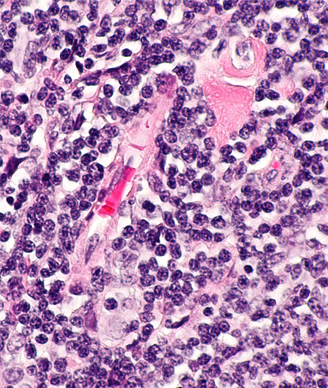
Mosunetuzumab Appears to Reduce Unmet Needs Associated With CAR T-Cell Therapy for R/R Follicular Lymphoma

An expert from Rutgers Cancer Institute indicates that mosunetuzumab may limit unmet needs commonly associated with CAR T-cell therapy such as cost, tolerability, and access.
The recent approval of mosunetuzumab-axgb (Lunsumio) for patients with relapsed/refractory follicular lymphoma could work to resolve a handful of the unmet needs left by CAR T-cell therapy, such as cost, access, and tolerability, without sacrificing efficacy, according to Matthew Matasar, MD, in an interview with CancerNetwork®.
The
Matasar, chief of the Division of Blood Disorders at Rutgers Cancer Institute, professor at Rutgers Robert Wood Johnson Medical School, and an investigator on the study, went into detail about the agent’s toxicity profile. Grade 3 or higher treatment-related adverse effects were observed in 51% of patients, with the most common being neutropenia and hypophosphatemia.
Transcript:
With current standards of care, CAR T-cell therapy is a very active treatment in patients with follicular lymphoma, but it has significant limitations including access issues, as many patients don’t live near CAR T-cell therapy centers or have the inability to undergo such treatment. The toxicity of CAR T-cell therapy is not insignificant.
In a disease such as follicular lymphoma in which we don’t yet have firm evidence that CAR T-cell therapy is a treatment with curative potential, the rigors and barriers, cost, and the toxicity profile of this treatment for follicular lymphoma are not necessarily as attractive as they might be in more aggressive histologies.
Other [diseases] often require treatment until progression or intolerance, including intravenous PI3K inhibitors such as copanlisib [Aliqopa], or treatments without extraordinary durability of response such as tazemetostat [Tazverik]. Currently, these patients don’t have a single unified, excellent standard of care.
Mosunetuzumab has an excellent activity profile, and it’s a fully outpatient therapy. The tolerability profile, I would say is favorable, particularly once you can get patients through step-up dosing, and over the period of time [in which they are] at risk for cytokine release syndrome, which is typically low grade and self-limited. After that, the treatment is very well tolerated with relatively few [adverse] effects.
That combination of excellent activity and good tolerability, with wide access to outpatient therapy, is appropriate for many therapeutic settings, making it an important addition to the therapeutic armamentarium for patients with relapsed/refractory follicular lymphoma.
References
- FDA approves Genentech’s Lunsumio, a first-in-class bispecific antibody, to treat people with relapsed/refractory follicular lymphoma. News release. Genentech. December 22, 2022. Accessed January 6, 2023. https://bit.ly/3FPCn7h
- Bartlett NL, Sehn LH, Matasar MJ, et al. Mosunetuzumab monotherapy demonstrates durable efficacy with a manageable safety profile in patients with relapsed/refractory follicular lymphoma who received ≥2 prior therapies: updated results from a pivotal phase II study. Blood. 2022;140(suppl 1):1467-1470.
Newsletter
Stay up to date on recent advances in the multidisciplinary approach to cancer.





































